HOME >> CHINA
The calling
Source:Global Times Published: 2015-10-15 18:23:01
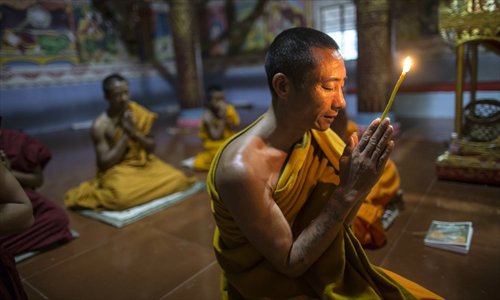
Du Yingjiao leads a prayer in his temple. Photo: George Cheung
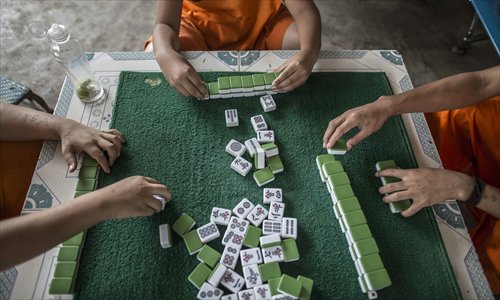
Pa Hanjian, an 11-year-old monk, plays mahjong with his fellow monks in a temple in Menglong town. Photo: George Cheung
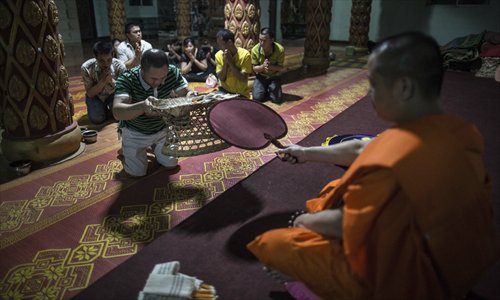
Villagers pray in a temple. Believers visit temples and pray when the family has a major event going on, such as a wedding, funeral or when a new house is built. Photo: George Cheung
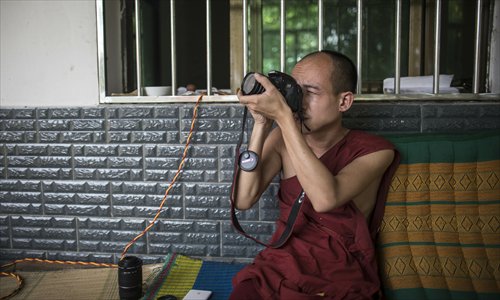
Du Peng tests a DSLR camera in his village. He's been buying equipment every year to prepare for setting up a media company. Photo: George Cheung
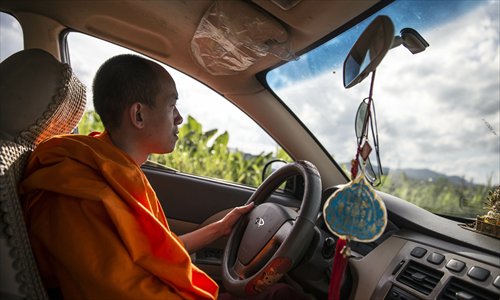
Du Peng drives the car that the villagers gave him in order to persuade him not to leave. Photo: George Cheung
Du Peng, a monk living in Menglun town, Xishuangbanna Dai Autonomous Prefecture in Yunnan Province, fiddled with a DSLR camera outside his temple, taking pictures and testing its functions. The 35-year-old has been obsessed with photography since he was a teenager, and his biggest wish is to open a media company to take advantage of Xishuangbanna's booming tourism and real estate industry.
Du is one of the many Dai monks who is thinking of returning to the secular world and joining the booming rubber, banana and tourism industries in Xishuangbanna. Since 2003, the number of monks and temples in the area has dwindled sharply, as the local economy attracted more and more monks to renounce their vows.
Theravada Buddhism had been integral to the life of Dai people in the region, which boders on Laos and Myanmar, who have long followed the tradition that each household will send men to become monks in local temples. Some stayed in the temples for several years before leaving, while some remained monks for their entire lives.
Du has been a monk for 21 years, and is now the senior monk in his temple. During its peak in around 1994, the temple had 34 monks. In 2003, when his village started to grow bananas, most of the monks in his village, who are largely single children, were called to return to the secular life by their families to engage in farm work. In 2008, Du Peng was the only monk that stayed in his temple.
The villagers used all the means at their disposal to persuade him stay, including buying him a car, fearing that the temple will be left in the hands of a stranger if he leaves. Du promised the villagers that he will not leave before he finds a successor.
In the neighboring Menglong town, Du Yingjiao, 45, has been a monk since he was 11 years old. Were it not for his disabled leg, he probably would have resumed to secular living too, but after years of struggle, he finally made up his mind to stay on as a monk. Three years ago, he became the only monk in his temple too.
Being disabled, Du Yingjiao often finds it difficult to look after the temple on his own, and a few months ago he went to Myanmar and invited three young Myanmese monks to his temple to help him. But they will only stay in China for two or three years before going back to their own country.
Global Times
Posted in: In-Depth